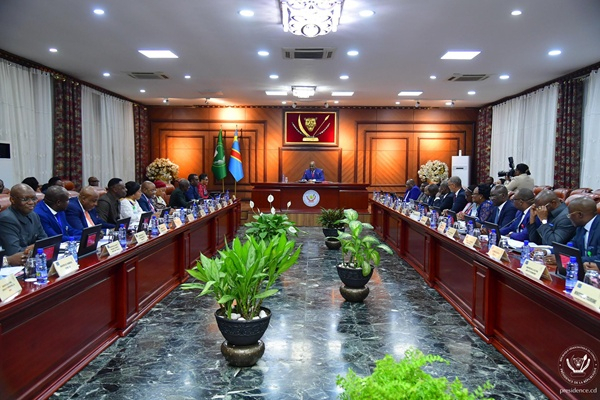Last Friday, the Congolese government approved two projects to boost tourism in the Democratic Republic of Congo (DRC). Both projects were drawn by the Ministry of Tourism. One involves a partnership with the Italian soccer club AC Milan. The other involves creating tourist villages.
Tourism Minister Didier M'Pambia Musanga said the project with AC Milan will leverage the club’s global presence to market the DRC as a top tourist destination. Concretely, an international marketing campaign aligning the DRC's image with AC Milan’s will be carried out to attract tourists interested in nature and culture.
Last July, Minister M’Pambia was in Italy. During his stay, a memorandum of understanding with AC Milan’s management. Financial details were not disclosed. AC Milan is a strategic choice given its fame. The club has nearly 500 million fans across Europe, Asia, and America, all key tourism markets.
Besides the partnership with AC Milan, the Congolese government approved plans to create tourist villages. These villages aim to enhance tourism by connecting urban and rural areas while preserving local cultures. Commenting on the project, Minister M'Pambia said it would help maintain traditions and create sustainable jobs in rural communities.
Earlier this month, the DRC approved its national tourism policy, which outlines four main goals to achieve by 2030: developing partnerships, promoting sustainable tourism, diversifying tourism offerings, and strengthening institutional capacities. The plan aims to generate $7 billion in annual foreign exchange earnings and create between 200,000 and 500,000 jobs in the sector by 2030.
This strategy aligns with recommendations from the African Development Bank (AfDB), which highlighted the importance of promoting ecotourism to leverage the DRC's rich natural resources. The AfDB points out that events like the centenary celebrations for Virunga Park in 2025 present excellent opportunities to showcase this natural wealth and strengthen the DRC's position in ecotourism.
Tourism contributes about 5% of the DRC’s GDP, compared to 10% in neighboring Tanzania.
Olivier de Souza










